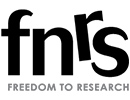Do we have ‘free will’?
26.06.2017The INSOCSI partners from Belgium are mostly concerned about the implications of the neurosciences for ‘free will’. This is a question that is not only of philosophical importance, but also of highest practical significance. If addiction counts as a disease that is neurophysiologically grounded, we do not have a choice and can be treated as sick people that deserve help and support, funded by health care systems. If we have free will, we are responsible and may have to pay all the costs on our own. Should smokers have the right to claim coverage of medical treatment caused by smoking? If I buy an expensive luxury good that eventually is useless for me, nobody pays the costs for me. But in fact, I might argue that my brain processes drove me to that decision, combined with all the external manipulations by advertising etc. which aim precisely at those mechanisms, increasingly informed by neuroeconomics and behavioural economics. So, don’t we run into a paradox here? If we have no free will, why should we be made responsible for our actions as consumers, not just in cases of addiction? If people nudge us, and they fail, aren’t they responsible for failing to manipulate me effectively, given my lack of free will?
In a paper full of insights, INSOSCI partner Bernard Feltz argued that free will is an emergent phenomenon in the interaction between the two levels of language and neuronal structures embodied in the brain. This follows similar ideas of many neuroscientists, such as Edelman. However, he is also very cautious in realizing that there can be also deterministic processes on the level of language. If freedom of will might emerge because language exerts downward causation on a brain with the property of neuroplasticity, this is by no means necessarily the case, if language emerges as another process that rigidly fixes our choices.
I think that free will is a necessary property of a system in which neurophysiological structures and symbolic structures interact, even if both, taken in isolation, might appear to be deterministic. This argument follows Hegel. Hegel dealt extensively with the problem that our biological nature is reigned by efficient causality, and offered what I think is the solution: Free will is not a property of biological individuals, but emerges in social systems composed of interacting individuals, and which enable human reflexivity. Searching for free will ‘within’ individuals is doomed to failure.
I think it is possible to restate Hegel’s argument in modern terms, without importing all the intellectual burden of Hegelian philosophy. We only need to expand Bernard’s model by considering the fact that language must be neurophysiologically embodied, too. This follows from modern approaches to meaning as action, where, as I mentioned in an earlier blog post, post-Wittgensteinian theories of meaning converge with recent thinking about grounded cognition. This builds the bridge to Mead’s distinction between ‘I’ and ‘Me’, as the latter is, broadly speaking, linguistically or symbolically mediated (again, see my earlier blog posts). In Mead’s view, both ‘I’ and ‘Me’ are neurophysiologically embodied, but the latter is essentially mediated by external symbols used in populations of agents to coordinate their actions.
Now, I argue that free will emerges in the interaction between ‘I’ and ‘Me’. The crucial idea is Mead’s notion of creativity. The ‘I’ is the source of creativity. Bernard rightly points to Edelman when he emphasizes the uniqueness of individual brains, and to the extremely complex dynamics of brain processes. So, in spite of efficient causality reigning in the brain as a material structure, the outcomes of external stimuli being processed are impossible to predict (think of the three-body-problem). Mead then continues in arguing that we can only access the ‘I’ as being represented by the ‘Me’, even in the course of action. This is where the Hegelian argument comes into play (and Mead studied Hegel): If our brain continuously produces novelty, it is the ongoing task of the ‘Me’ to make sense of it. This results in the symbolically mediated construction of ‘intentions’. If we add real social interaction and communication, this further bolsters the role of ‘free will’, in the sense of spcially recognizing the creative autonomy of the individual. In other words, free will represents the creative space between the spontaneous and unpredictable production of action by a deterministic brain and the interpretive leeway of making sense of it, in continuous reflective communication with others.
There is another reason why free will emerges in systems which are symbolically mediated. It goes back to the philosopher Lucas and his application of the Gödel theorem on mind. This argument was basically presaged by the economist von Hayek in his book ‘The Sensory Order’. It simply states that reflexivity in a closed loop system such as the brain will always result into internal paradoxes. Hayek argued that the brain cannot understand itself because it cannot create a system that is of higher complexity than itself. But that would be logically necessary for designing a model of the brain by which it could predict its own actions. I argued elsewhere that this opens the room for free will. Firstly, free will can be conceived as breaking up paradoxical ‘hang ups’ just by arbitrary action (which appears to be an argument familiar from French existentialism), and secondly, mediation by external symbolic systems might enlarge the system logically, thus enabling more complex reflexive operations.
These are highly abstract thoughts, but I think that they match with the empirical and clinical literature about phenomena such as addiction. For getting off the hook, often shifts in ways how to look at oneself appear to be crucial, even triggered by apparently minor events. In a previous blog, I introduced the term ‘me-engineering’, for example, via motivational interviews. These methods aim at mobilizing free will via triggering a Hegelian dynamic of reflexivity, which might work beyond the reach of consciousness. In the end, we act as free people, living with a deterministic brain.
Feltz, Bernard. “Plasticité Neuronale et Libre Arbitre.” Revue Philosophique de Louvain, no. 1 (2013): 27–52. doi:10.2143/RPL.111.1.2967243.







